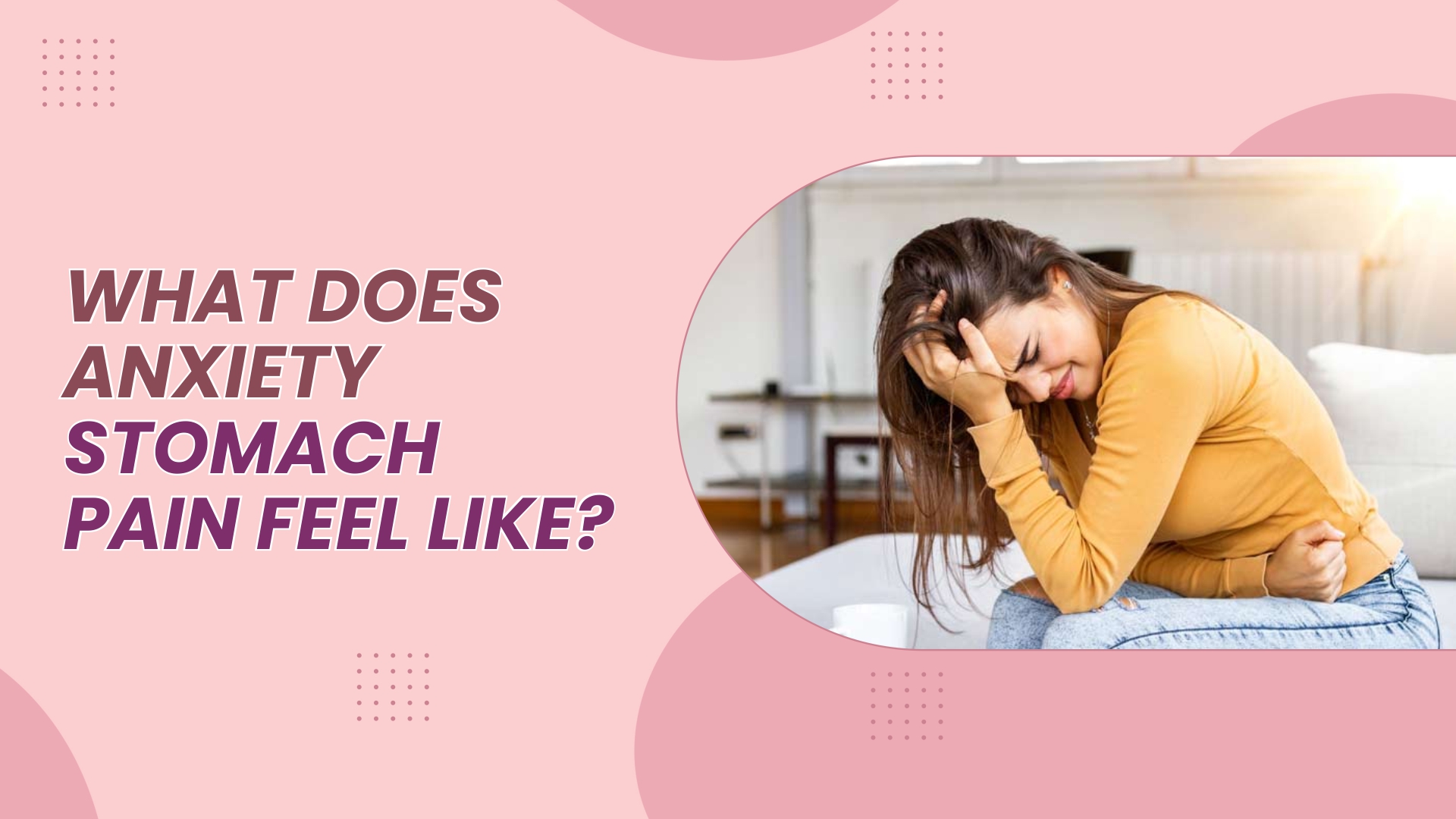Sometimes, you might have noticed that when faced with an important moment, you tend to get butterflies in your stomach. This feeling of pain in your stomach is different from the various other physical indications of stress you can feel. This condition is commonly referred to as anxiety and stomach pain.
Though the brain and stomach are different, they share a unique and quite interesting connection. This is why you might expect somebody’s symptoms in things you think should only be psychological. Sometimes, you might even feel this stomach pain and think you have a different sickness.
In this blog, we will explore the connection between the stomach and brain so individuals can properly understand what does stomach pain feel like and how stress can be the cause of anxiety stomach pain
The Feeling of Anxiety Stomach Pain
It is quite common for some people to have a nervous stomach. However, for others, this experience is a one-off. Though this condition is not diagnosable, many doctors acknowledge it. This occurrence is sometimes due to mental health, emotional state, or gut health.
In a 2020 study, abdominal pain in adolescents and children was associated with anxiety, depression, unhappiness, and being bullied. This suggests that since it is psychological, taking a proactive approach, such as consulting with a MindSpa expert, might save you from the effects of an anxious stomach.
In many cases, an anxious stomach doesn’t indicate anything serious. When witnessed, you might feel tightness, churning, cramping, or a butterfly stomach feeling, twitching, shaking, and shivering of the muscles. Many people often ask the question, “Can stress cause stomach pain and bloating?”. Gut stress effects can manifest in several ways and all over the body.
Some symptoms could include feeling upset after eating, diarrhea or constipation, heartburn, acid reflux, bloating, depression, mood swings, restlessness, inability to sleep and excessive sleeping, racing thoughts, and anxiousness.

Why Stress Results in Discomfort and Pain
According to various research, we know that there is a relationship between the brain and the digestive tract via the central nervous system. The part of the nervous system serving the gastrointestinal tract (GI), referred to as the enteric nervous system directly connects the GI to the brain. So, in anxiety provoking or stressful situations, it can result in normal physiologic processes being interpreted as painful.
The connection between the brain and the gut
When individuals have stress or anxiety, neurotransmitters and hormones are sent to the body, negatively affecting gut mobility or the way our stomach and intestines move waste in the body. Additionally, stress affects the balance between bacteria in the gut, resulting in an upset stomach.
Various research has investigated the connection between the brain and gut and mental health. In 2022, a study discovered that individuals with depression had a lesser level of some types of bacteria in their gut. The research further shows that giving probiotics to individuals with depression improves their symptoms of depression.
In another study, individuals with anxiety had an increased level of inflammation in their gut. The study also found that offering probiotics to individuals with anxiety eased their anxiety symptoms. Both studies suggest that gut flora is vital in developing and treating mental health conditions.
How to Improve Gut Health for Mental Health
You can do several things to improve the health of your brain and gut. They include:
1. Focus on proper
Proper digestion is crucial for gut health. To digest foods, you require a rest and digest state, also known as the parasympathetic state. If you are not in this relaxed state, your body cannot produce the gastric juices that properly absorb food. This means you are not absorbing the minerals, vitamins, and nutrients required to support a healthy brain and body. To enter this state, try practicing deep breathing before you eat.
2. Practice mediation techniques
In some cases, anxiety and stress could be a result of an event yet to happen or things you can’t control. However, focusing on these things can affect your ability to influence factors you can control, resulting in pressure. You can manage stress by regaining control of your thoughts. This results in a calming effect that allows you to manage stress better. Consider performing mental brain exercises, meditation, journaling, grounding techniques, and progressive muscle relations.
Additionally, you can consider taking a proactive approach to manage your anxiety and stress by taking a MindSpa to allow you to distance yourself from nervous stomach effects and protect your psychological health.
3. Change your diet
It is crucial to eat the right foods that add to a healthy gut and know the foods that can cause problems. Consider replacing high sugar, high fat, and highly processed foods with whole foods that offer several benefits.
Some of these foods include collagen-boosting foods such as salmon and bone broth. They improve digestion and protect the intestinal wall. High-fiber foods like berries, bananas, pears, avocados, peas, oats, Brussels sprouts, and broccoli. They can aid in healthy digestion. Foods rich in omega-3 fatty acids such as flax seeds, mackerel, and salmon. They can help reduce inflammation and enhance digestion.
4. Eat foods rich in probiotics and prebiotics
Eating foods rich in prebiotics and probiotics also helps you take care of your health. These foods influence the balance of good bacteria in the gut flora, also called microbiome. Probiotic foods also offer diversity to your guts, while prebiotic foods help healthy bacteria grow.
Some probiotics you can add to your daily diet include high-quality yogurt, kvass, apple cider vinegar, kombucha, kimchi, kefir, and sauerkraut. On the other hand, prebiotic foods you can consider eating include leeks, garlic, onions, dandelion greens, chicory root, asparagus, and jicama.
Herbal treatments
Some herbs, also called antispasmodics, can reduce stomach pain. These herbs include lavender, spearmint, lemon balm, and peppermint. Through the reduction of muscle spasms and stomach tightening, they help relieve cramps, butterflies, and flatulence.
According to a 2022 study, few studies have assessed how herbal supplements affect the microbiome-gut-brain axis (MGBA). However, several studies hint at a possible interaction with MGBA, such as anti-inflammatory effects and an increased abundance of health-beneficial microorganisms.

Conclusion
Sometimes, it feels like no connection between your brain and your stomach. However, when something bothers you mentally, you might feel some effects on your stomach. This occurrence is common in some people and is characterized by several feelings, such as cramping and tightness in the stomach.
A nervous stomach is often associated with your mental or emotional state and your gut or digestive health. An anxious stomach could just be how your body naturally works when experiencing stress or an isolated experience; in that case, a MindSpa consultation might help.

